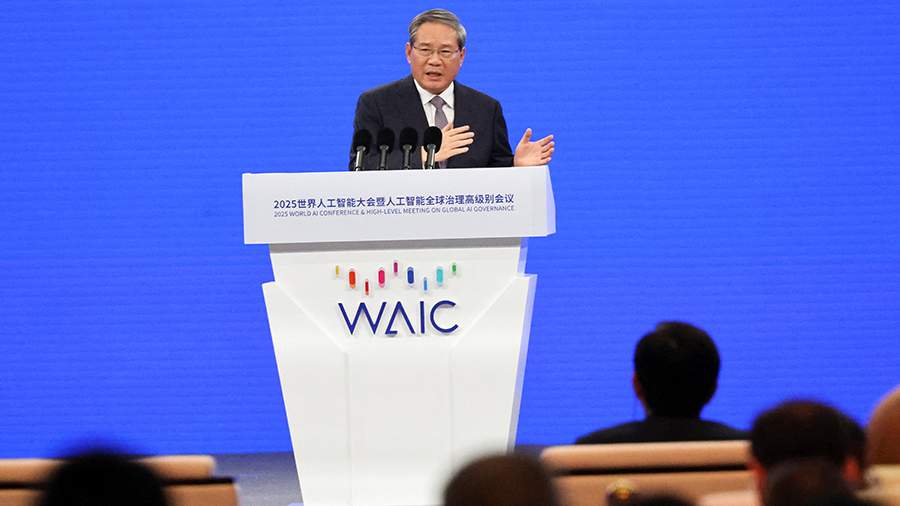At the WAIC 2025 in Shanghai, China proposed creating a new global organisation focused on artificial intelligence (AI) cooperation. The move comes as tensions between China and the U.S. continue to shape the global AI landscape.
Chinese Premier Li Qiang announced the proposal during the opening ceremony of the World Artificial Intelligence Conference. He said China aims to foster international collaboration, especially in the regulation and development of AI.
Without directly naming the U.S., Li warned that AI should not become the “exclusive game” of a few powerful nations or companies. He emphasized equal access and shared use of AI for all countries, especially those in the Global South.
China’s initiative is seen as a direct response to the U.S. government’s recent AI export push. Just days earlier, the U.S. released a new AI strategy aiming to expand its technology reach among allies and maintain its lead in AI development.
Premier Li also pointed out the need for better global governance in AI. He said current efforts are fragmented, with differing rules and regulatory ideas between countries. Li urged the international community to work toward a unified governance framework.
At a separate roundtable, China’s Vice Foreign Minister Ma Zhaoxu spoke with representatives from over 30 nations, including Russia, Germany, South Korea, and South Africa. He shared plans for the proposed AI group and said China is considering placing its headquarters in Shanghai.
The Chinese foreign ministry released an action plan inviting global participation. It called for collaboration among governments, researchers, and companies through open-source platforms and international exchanges.
The three-day WAIC 2025 event has drawn major tech firms, experts, and policymakers from around the world. Over 800 companies are showcasing thousands of AI products, including robots, language models, and smart devices.
Despite Western export restrictions, China’s progress in AI remains strong. Industry leaders like Huawei, Alibaba, and Unitree are among the key participants, along with U.S. firms such as Tesla and Amazon.
For more on how Pakistan and China are strengthening ties in maritime development.











